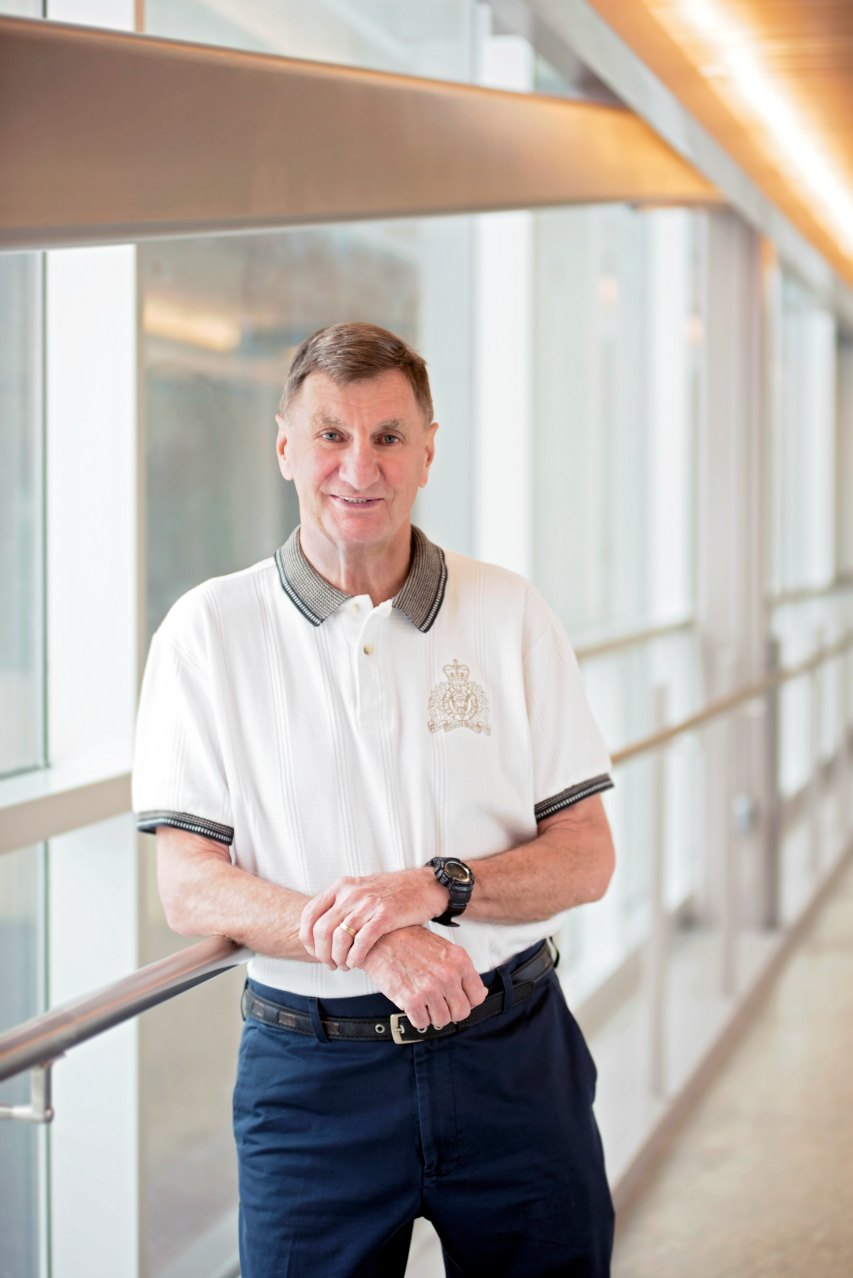
Alumnus Wayne Jeffery's career to becoming a forensic toxicologist has taken him around the world to places like Southeast Asia, Central and South America, the Caribbean and Europe.
Wayne Jeffery is a forensic toxicologist. When asked how he landed that title, Jeffery says with a laugh, "it was a fluke."
It began with a visit to a pharmacy career fair on campus. Jeffery spotted a booth hosted by the Royal Canadian Mounted Police (RCMP). With curiosity piqued, he headed over to inquire what the RCMP could possibly want with pharmacists.
That's when he learned about the forensic lab and that moment forever changed his career path.
"I thought it looked interesting and it would look good on my curriculum vitae," says Jeffery. "I ended up staying 34 years."
Jeffery was a civilian member of the RCMP from 1970-2004 in the RCMP Forensic Lab. His career began in Edmonton in the alcohol section from 1970-74 and from 1974-76 he served in the toxicology section. A chance to lead the toxicology unit for the RCMP "E" division saw him move to Vancouver in 1976.
After "retiring" from the RCMP in 2004 he has served s a consultant and continues work for the police and the courts as well as providing training on drugs and alcohol usage in the workplace.
Jeffery says he's retired "50 per cent of time".
Upon reflection of his career with the RCMP, he's quick to credit his work with them for giving him unique work skills.
"Pharmacy gives you the pharmacology background and I took these skills to the Police Forensic l side," says Jeffery. "I was able to help people understand how these drugs and alcohol affects a person's behaviour in regards to crime."
Jeffery was still one of the first pharmacists hired by the RCMP when he made the jump to Vancouver. He also was responsible for hiring other pharmacists to join his team.
He really liked the variety of the work. Jeffery says, "the lab and analytical work was really interesting, but then you to take it one step further, such as take a blood sample for analysis and often testify in court about the findings."
His graduate degree also gave him the opportunity to take on research projects; he published 26 peer-reviewed articles over the course of his career.
Jeffery's specific training and knowledge in drugs and alcohol led him to train police officers on those topics through breathalyzer courses. He expanded this training to also include teaching officers about the effects of drugs, how to identify drugs, the effects of drugs on the drug user and the drug impaired driver. His reputation in Canada for his training abilities, coupled with his unique knowledge and skills, led him around the world to places like Southeast Asia, Central and South America, the Caribbean and Europe to provide training for other police officers.
And here in Canada, he estimates he's testified in "every small town in Alberta".
However, it's his innovative work in starting the drug recognition expert (DRE) program in Canada that is his legacy.
"The DRE program-detecting the drug impaired driver at the roadside-is now enshrined in the Criminal Code of Canada," says Jeffery. "I was the first one trained and brought the training to Canada."
This involved training police officers at roadside on how to detect the drug impaired driver; it's "unique training for officers that deals with the pharmacology of drugs; it's an intensive course."
Jeffery also trains police officers on how to give expert testimony on the possession of prescription drugs for the purpose of trafficking. He also does this as well as consulting on cases for both the Crown prosecution and the defence.
For those who may be interested in similar career, Jeffery offers this advice: "It's a unique career and you're using your pharmacology skills differently.
"When I first started I was going to be a pharmacist, but the medicinal chemistry courses really spoke to me. That's what set me on this path."